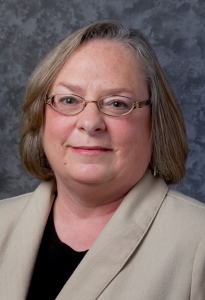
The Kansas Legislature convened last week for a special session, after the Kansas Supreme Court issued a ruling that the state was not funding all schools in Kansas equally.
The session lasted only two days, and ended when a bipartisan compromise passed late Friday. While the bill is not perfect, it is a step in the right direction, and most importantly – allocates $38 million in new money and prevents our schools from closing.
Democrats led the effort
A plan to resolve the school finance crisis surrounding equity passed the House of Representatives on a vote of 116-6 and the Senate on a vote of 38-1 late Friday evening. All Democrats voted in favor of the bill.
A special session was needed because the governor and his GOP allies in the legislature did not appropriately address the equity issue during the regular session.
Democrats were committed to working to find a fair solution that would not harm our schools. We were the first to call for a special session and the first to release a school finance plan, which provided a blueprint for the bill that passed.
Initially, the GOP leadership in the House and Senate proposed a bill that would actually cut classroom funding before providing additional funds to schools. Such a plan would have done more harm than good and most likely would not have been approved by the court.
The plan that did pass increased funding for our schools by $38 million and used the following funding sources:
Funding Source Amount
Virtual School Funding $2.8 million
Extraordinary Needs Fund $7.2 million
TANF Idle Funds $4.1 million
Kansas Bioscience Authority $13 million
Tobacco Settlement Funds $16 million
Total $38 million
1. Freeze virtual school funding: Will hold the funding for virtual schools steady for the current year and not increase them as was already approved. This proposal uses $2.8 million.
2. Extraordinary Needs Fund: Will use $7.2 million from the Extraordinary Needs Fund that was established within the Block Grant bill in 2014. Plus, an additional $5 million will be moved to the Extraordinary Needs Fund from a Department of Motor Vehicles Modernization Fund.
3. TANF idle funds: Will use $4.1 million from unused TANF funds. TANF typically funds programs meant to help needy families achieve self-sufficiency. The bill utilizes existing unused funds and does not cut any existing programs.
4. Sale of the Kansas Bioscience Authority: Will use up to $13 million from the proceeds of the sale of the Kansas Bioscience Authority that are in excess of $25 million. The Bioscience Authority is a former quasi state agency that was already scheduled to be sold off.
5. Unused tobacco settlement funds: In the 1990s, Kansas joined several other states in filing a lawsuit against tobacco companies claiming tobacco was a health risk that increased health care costs for the states. Due to a settlement of that lawsuit, Kansas receives annual payments from the tobacco companies. Typically, these funds are used to finance children programs. Due to a veto by Gov. Brownback, up to $16 million was not being used on these programs and was idle.
Thankfully as a result of this special session our schools will open this fall. I am proud of my Democratic colleagues for standing together with Kansas students, teachers, schools, and administrators to find a solution that puts more money into education. Moving forward, I will continue fighting for adequate and equitable funding for our schools.
Keep in touch
It is a special honor to serve as your state representative. I value and need your input on issues facing state government. Please feel free to contact me with your comments and questions. You can reach me at 913-626-0404 or by email at [email protected].
